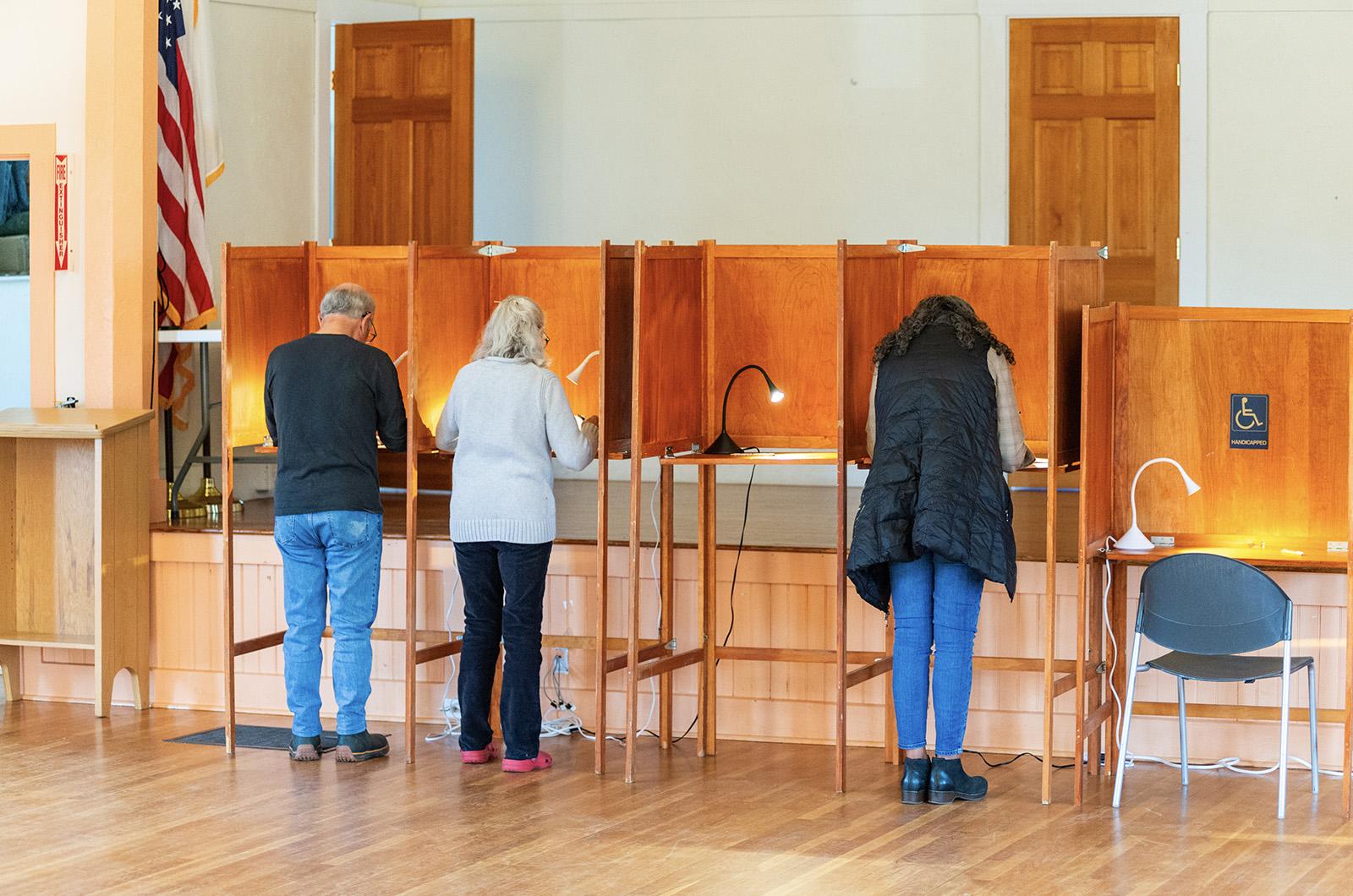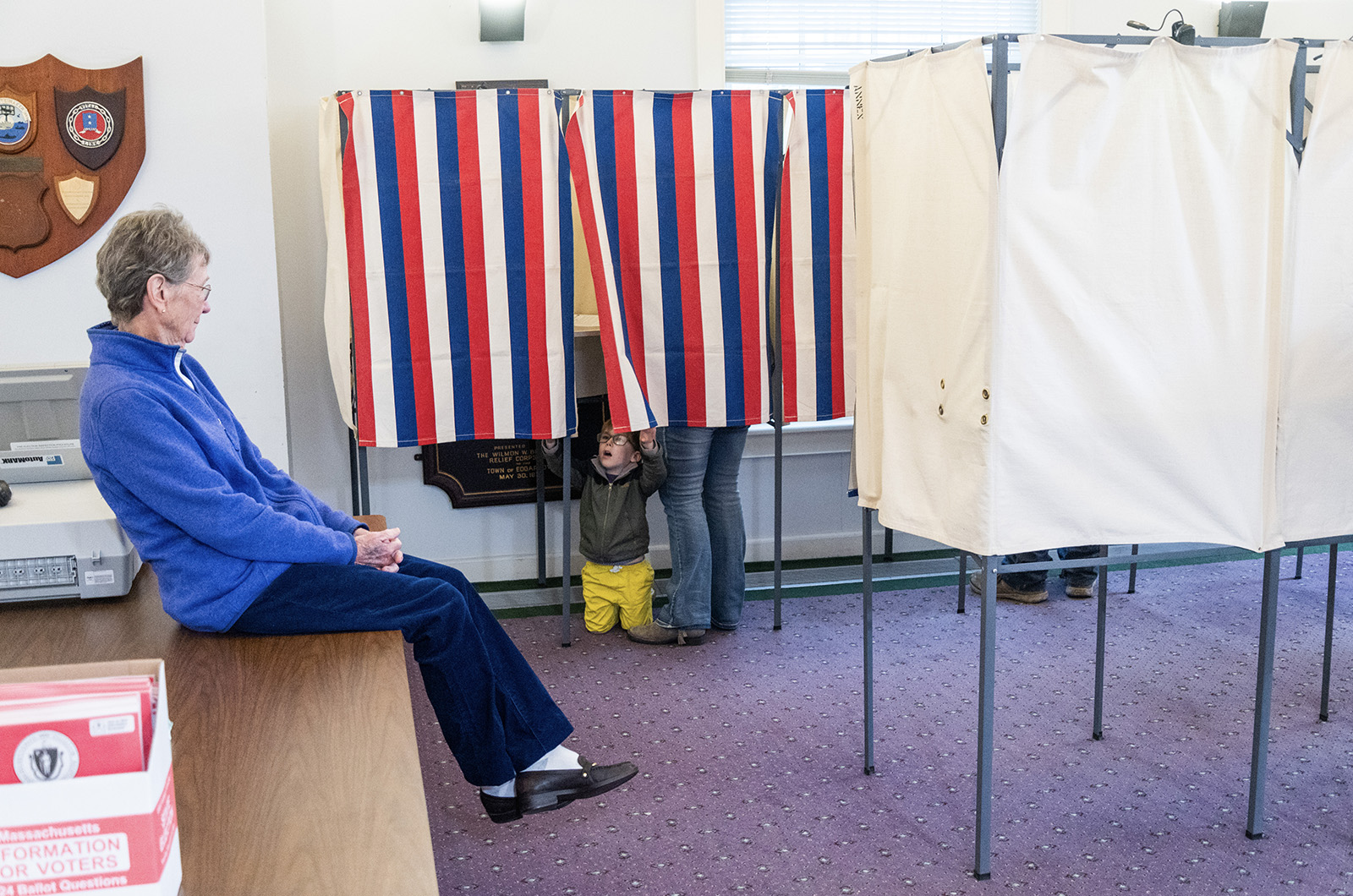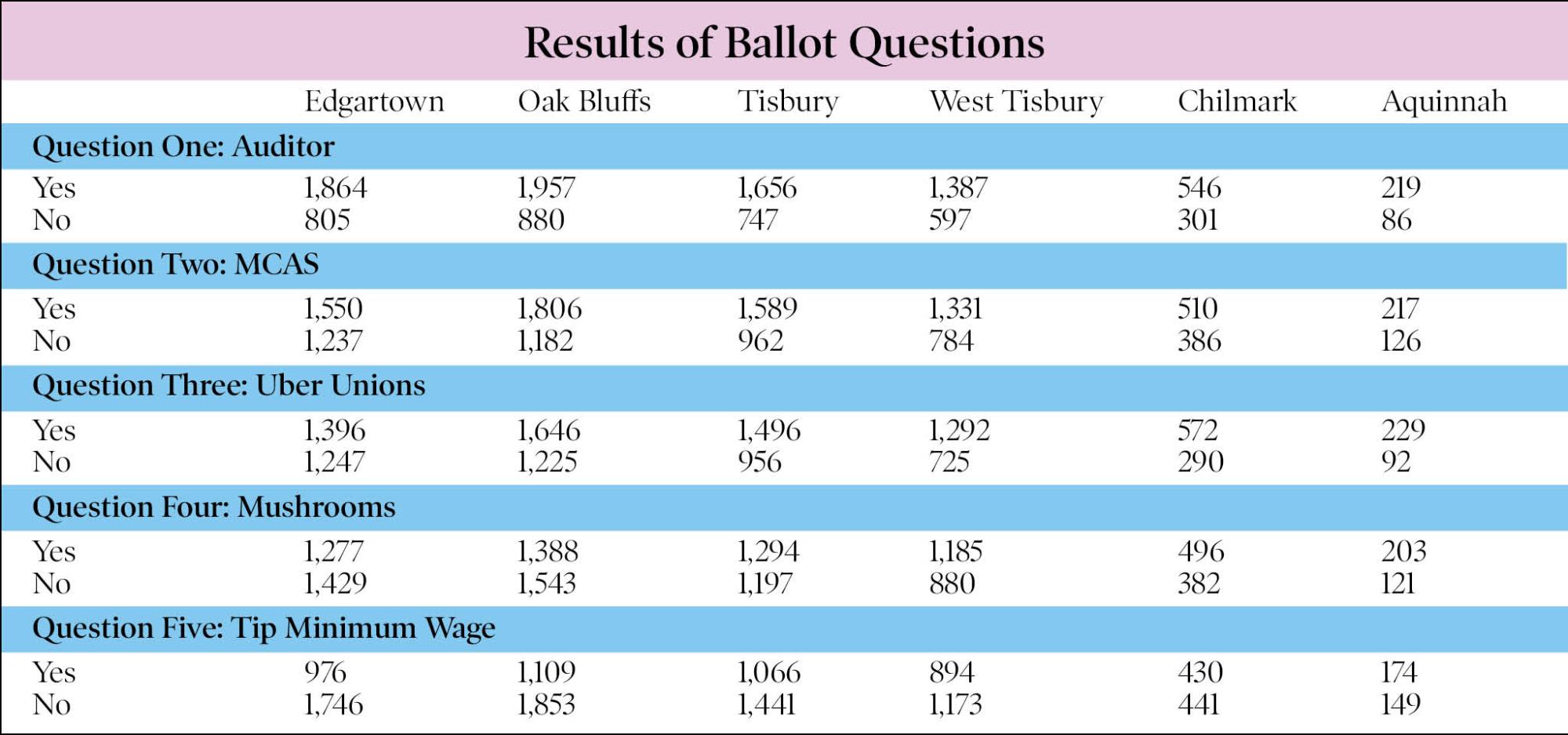Islanders joined the rest of the state Tuesday in voting to repeal a part of a major education reform that required students pass a standardized test in order to graduate.
By a vote of 7,000 to 4,677, the six Island towns voted in favor of the statewide ballot question to get rid of the Massachusetts Comprehensive Assessment System graduation requirement for high schoolers. About 59 per cent of voters statewide were in favor of the question.
The question, backed by teachers’ unions, doesn’t end MCAS altogether. Students will still have to take the tests, but they can graduate even if they don’t pass. Districts will now need to set their own standards for diplomas.
Some educators on the Island were in favor of ending the practice of making the test a requirement for graduation, saying the make-or-break nature of the 10th grade test didn’t always seem to serve students.
Richard Smith, the superintendent of the Martha’s Vineyard Public Schools System, voted yes on the question. He has maintained that the MCAS are a good barometer of students’ progress, but the value of the test isn’t diminished if the graduation component is removed.
“When used correctly, common assessments like MCAS have great value because they inform [in] lots of ways we can . . . support [students], improve [teaching methods],” he said. “Teachers can interact with the test . . . . If many in the class did not do well, that’s simple data for us to strengthen that area.”
Other teachers also voted in favor of the question, which drew opposition from high-ranking state officials, including Gov. Maura Healey. Proponents have said that high-stakes tests can hurt English language learners, economically disadvantaged students and students’ with disabilities.
While at the Oak Bluffs polls, West Tisbury school teacher Nancy Danielson said she was against the graduation requirement.
“I work in a school and I see how kids struggle with it, so I voted to eliminate the MCAS,” she said.
Tisbury voter Holly MacKenzie felt there were other educational yardsticks in schools for children to be measured by.
“There are so many checks and balances in the [school] system for education requirements, and I think a standardized test shouldn’t be the only thing that prevents someone from getting a high school diploma,” she said.
Voters on the Island largely followed other state trends, including rejecting Question 5, which looked to gradually increase the tipped minimum wage for workers such as servers and bartenders to $15 in 2029.
Every town voted against the question, and it failed at the state level by almost 30 points.
Island restaurateurs came out against the question in the lead up to the election, with some posting signs advocating for “Vote No on Question 5” in their windows.
On Wednesday, JB Blau, the owner of a pair of restaurants and a nightclub in Oak Bluffs, said if the question passed it could have been disastrous for Vineyard eateries.
He, as well as other restaurant owners, thought the rise in employee wages would push restaurant owners to cut back on staff, potentially resorting to self-service kiosks.
“The last thing I want to do is go to my favorite restaurant and order from an iPad,” he said.
He also stressed that the current law stipulates that if tipped workers don’t make at least $15 an hour — between the current minimum wage of $6.75 and their tips — employers have to pay them $15 an hour.
Tisbury voter Glen Caldwell also wasn’t in favor of the change, saying he had talked to friends in the industry.
“Most of the people I talked to liked the way it is and are a little scared to jump off that cliff,” he said.
The Vineyard also voted in favor of allowing the state auditor to audit the legislature, and allowing drivers of Ubers and Lyfts to unionize. Both questions passed at the state level, though the former will likely need to be hashed out with the legislature, which has raised concerns about separation of the state government branches.
But where the Vineyard departed from the state trend was Question 4, which would have legalized psychedelic mushrooms.
Altogether, the six Vineyard towns voted 6,631 to 5,552 in favor; the state overall voted against the measure.
But even here on the Vineyard, residents were split. While Tisbury, West Tisbury, Chilmark and Aquinnah were all in favor, Edgartown and Oak Bluffs voted against the question.
Henry Wallace, an Oak Bluffs voter, was one of the proponents.
“I feel it will help people with trauma and addiction with the way the law is proposed,” he said. “We shouldn’t deprive citizens of that.”









Comments (1)
Comments
Comment policy »